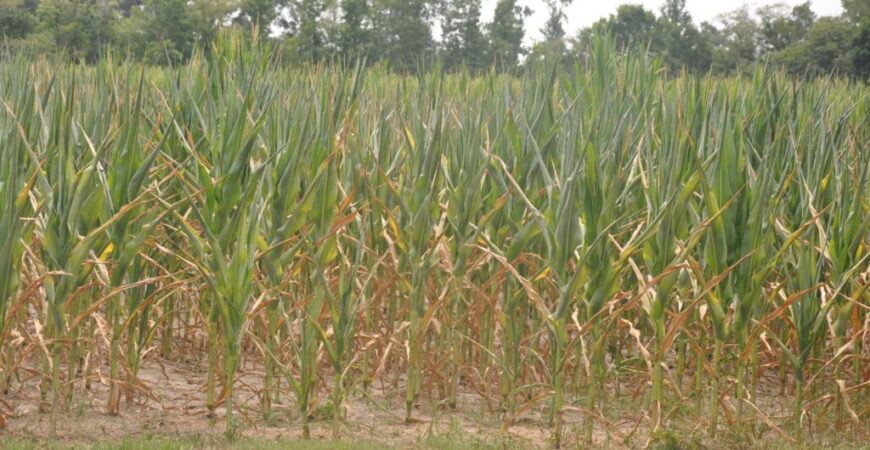It’s been about a month since Duplin County saw significant rainfall — and area farmers are starting to feel their hopes for a successful yield dry up like the corn stalks in their fields.
“Basically, we are a bit on the dry side and it is starting to affect crops,” said Della King, field crops agent for Duplin County Cooperative Extension. “With the lack of rain and the heat, especially from a corn standpoint, you don’t get pollination of the ears that you need.”
Since the beginning of June, the county has totaled just 0.26 inches in rainfall, and on top of that, temperatures are inching in to the low to mid-90s most days. The U.S. Drought Monitor shows all of eastern North Carolina as abnormally dry. (Up-to-date maps can be viewed at drought.gov.)
“A lot of crops are burning up in the field,” King said. “When that happens, the corn is not going to make. The plants will just shut down.”
And even though the area saw a spattering of rain on Friday and possible storms on Monday, it may be too little too late. “When crops get to a certain point, they will not recover even if we do get rain,” King said.
Frank Williams, who farms corn and soybeans in southwestern Duplin County, said it’s been a frustrating corn season so far. “It’s dry,” he said. “You get a rain prediction and it fizzles out before it gets to you. Right now, it’s been about three or four weeks since we had a rain that really mattered.”
“It’s not good,” farmer and county commissioner Justin Edwards said of the 2024 corn crop so far. “The majority of my crop has less than two inches of rain on it. The dry weather and heat are killing us.”
Unless farmers have irrigation systems, the lack of rain can be devastating for crops, Williams said. However, some farmers simply can’t afford irrigation systems, which can run $1,000 to $4,000 per acre. And then, there are many small fields in Duplin County in which irrigation systems just aren’t possible.
Edwards said some of his fields have irrigation systems, but it’s a very small percentage of his overall acreage.
“The most important time for rainfall and moisture in the soil is when the corn pollinates — that’s when you can see the tassel,” Williams explained. “You’ve got only a short period of time where the corn needs to kernel.”
Anyone driving around the county has probably noticed that the crops are beginning to dry up and that the corn is tasseling, meaning now is the time for a good, soaking rain. “We’re talking about an inch or even two,” Williams said. “We don’t really want a storm, but it’s almost to the point where we need one.”
And then, there’s the heat. When the temperature gets above 95 degrees, the corn’s pollen is no longer viable. “That diminishes your yield in a hurry,” Williams said. “You’ll end up with a cob with little nubbins of kernels.”
Some of Williams’ corn hasn’t gotten to the tasseling stage yet, which means there may be hope for it, if the area does get the needed rain in a timely fashion. “I’m hoping it may get 75% of its potential,” he said. “Hopefully, if we get a little rain, some crops might be OK.”
Edwards said some of his late-planted corn might make it, but that’s only if the weather pattern changes — and quickly. “Soybeans should be fine, cotton should be fine, but the corn is really bearing the brunt of it right now.”
Of course, farmers know going into it that they’re at the mercy of Mother Nature. “The bottom line is,” Williams said, “agriculture is very dependent on the weather. You just have to do the things you can control and just hope Mother Nature and the good lord will provide the rest.”
Edwards agreed with that statement. “This profession is not for the faint of heart,” he said. “All you can do is put your seed in the ground in the spring and the man upstairs will have His way, whether we like what He does with it or not.”
 Twitter
Twitter Facebook
Facebook Instagram
Instagram






